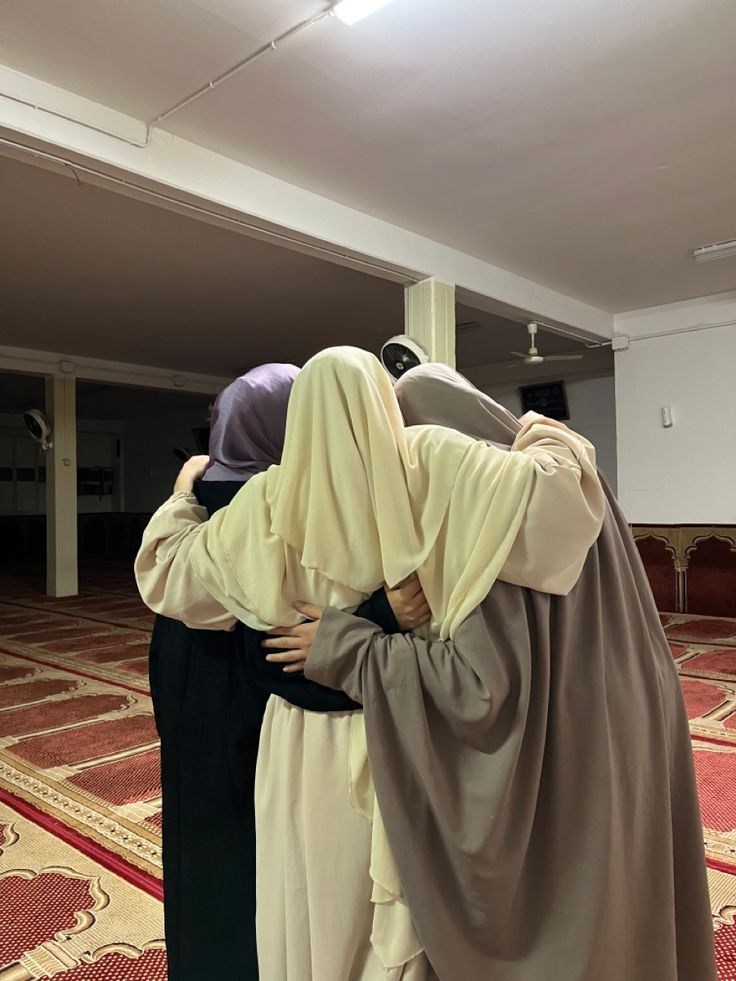
Balancing Ramadan with Family Expectations: Navigating Cultural Pressures
Ramadan is a deeply spiritual time for Muslims, a time to connect with Allah, increase worship, and focus on self-reflection. However, it can also bring its share of family expectations and cultural pressures, especially when trying to balance personal spiritual goals with the desires and traditions of those around you. Whether it’s managing how the fast should be observed, the pressure to be part of every family gathering, or the challenge of meeting cultural norms, these expectations can sometimes feel overwhelming.
In this post, let’s explore some practical ways to manage and navigate these pressures while still honoring the spirit of Ramadan and maintaining your mental and emotional well-being.
1. Open Communication: Expressing Your Needs

One of the most effective ways to handle family expectations is by having open, honest communication with your loved ones. Many times, cultural expectations are based on unspoken assumptions. Letting your family know what you need can ease the pressure.
✅ What You Can Do:
- Share your intentions and boundaries: Let your family know about your spiritual goals for Ramadan. Explain the practices that are meaningful to you, and kindly express any limitations you might have—whether it’s fasting in a certain way or participating in activities.
- Discuss family traditions: If certain family traditions are overwhelming, consider explaining your perspective. Find a middle ground that honors both your needs and your family’s expectations.
🔹 Pro Tip: Approach the conversation with kindness and understanding. Make it clear that your desire to observe Ramadan in a certain way comes from a place of personal faith and growth, not disregard for the family.
2. Prioritize Your Spiritual Well-Being
While Ramadan is about connecting with family, it’s equally important to focus on your spiritual development. Sometimes, cultural pressures can pull you in many directions, making it hard to stay centered on what Ramadan is truly about: worship and self-reflection.
✅ What You Can Do:
- Create a spiritual routine: Allocate time for prayer, Quran reading, and dhikr (remembrance of Allah) each day, even if it’s just a few minutes. This allows you to keep the spiritual aspect of Ramadan at the forefront.
- Set boundaries around social activities: It’s okay to decline invitations if you feel that certain family gatherings will interfere with your worship time or leave you feeling overwhelmed.
🔹 Pro Tip: Remember, the true essence of Ramadan lies in your connection with Allah, so it’s important to carve out time for your personal ibadah (acts of worship) even if it means stepping back from some cultural obligations.
3. Navigating Family Expectations Around Meals

One of the most significant sources of cultural pressure during Ramadan can be the meal preparations. In many cultures, large family gatherings and feasts are a staple of Ramadan. While these gatherings are filled with love and bonding, they can also create stress, especially when you’re trying to maintain a healthy fasting schedule and avoid overeating at iftar.
✅ What You Can Do:
- Set expectations about iftar meals: Politely explain your preferences regarding food, especially if you’re aiming for a more mindful or health-conscious approach during Ramadan. Opt for simple, nutritious meals that align with your fasting goals.
- Limit food obligations: If you’re feeling the pressure to make elaborate dishes, communicate with your family about contributing a simple meal or a side dish instead of taking on too much responsibility.
🔹 Pro Tip: If possible, share the cooking duties. This can ease the pressure and allow everyone to enjoy the process together, which can be especially helpful if you have a busy Ramadan schedule.
4. Family Dynamics: Finding Balance
Family dynamics during Ramadan can be a delicate subject. From balancing time spent with parents and extended family to managing the expectations placed on you as a daughter, wife, or mother, it’s easy to feel pulled in multiple directions.
✅ What You Can Do:
- Delegate tasks: Whether it’s taking care of household chores or managing the kids’ Ramadan routines, don’t hesitate to ask for help. Assigning roles allows everyone to contribute, reducing the overall burden.
- Be flexible but firm: While it’s essential to show respect and love, it’s also important to stand firm on practices that align with your spiritual goals. Finding a balance between family obligations and your personal needs will reduce unnecessary stress.
🔹 Pro Tip: If you’re a mother, consider getting your children involved in your spiritual routine—this could mean praying together, teaching them small duas, or reflecting on the significance of Ramadan. It builds a deeper connection to the month and reduces feelings of guilt about being “too busy” for family.
5. Managing the Emotional Burden of Cultural Expectations

Cultural pressures can also affect your emotional well-being. The expectations to be present at every family event, take part in certain traditions, or meet the perceived “ideal” Ramadan standard can sometimes feel overwhelming.
✅ What You Can Do:
- Practice self-compassion: Acknowledge that it’s okay to set limits and not be able to fulfill every cultural expectation. You don’t have to be perfect or do everything for your Ramadan to be meaningful.
- Engage in self-care: Whether it’s taking a few minutes to meditate, listening to calming recitations, or practicing deep breathing, take time to nurture your mental and emotional health.
🔹 Pro Tip: Self-compassion is key to managing the emotional pressure of Ramadan. Remind yourself that you’re doing your best to balance the spiritual and cultural aspects of the month, and that is enough.
6. Embrace the Spirit of Ramadan with Flexibility
Cultural expectations can sometimes be rigid, but remember that Ramadan’s true essence lies in flexibility and adaptability. You don’t have to follow every cultural practice to the letter in order to experience the blessings and peace of this month. Embrace the beauty of Ramadan in your own way while also respecting the traditions that resonate with you.
✅ What You Can Do:
- Choose what aligns with your values: Focus on what enhances your spiritual connection with Allah, whether that’s engaging in extra prayers, charity work, or spending quality time with loved ones.
- Give yourself permission to say no: It’s okay to say no to extra events, family expectations, or additional stressors that could detract from your inner peace during Ramadan.
🔹 Pro Tip: Stay connected to your personal goals for Ramadan. Use them as your anchor to guide your decisions and remind yourself why you’re fasting in the first place.
Final Thoughts: Balancing with Grace
Navigating family expectations and cultural pressures during Ramadan is no easy feat, but with open communication, self-compassion, and a focus on your spiritual well-being, it’s possible to balance these aspects of your life in a way that feels right for you. Embrace the flexibility of Ramadan, and allow it to bring you closer to your family, your faith, and yourself.
🌙 How do you navigate family expectations during Ramadan? Share your experiences or tips for maintaining a balance between your spiritual and cultural commitments! 💬✨
No Responses